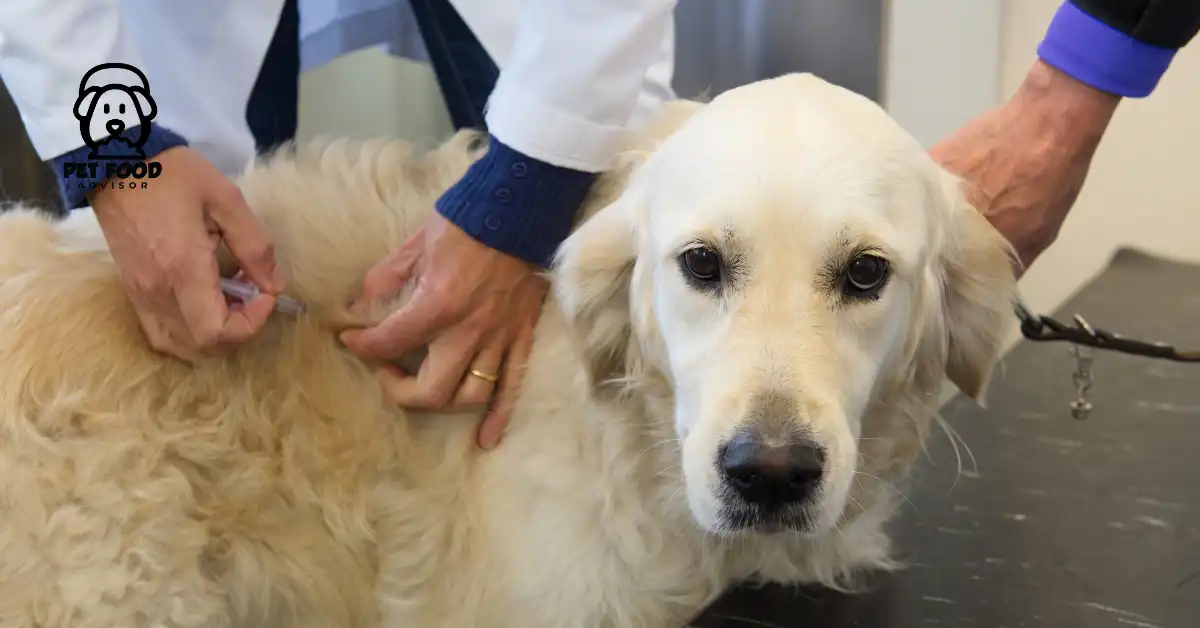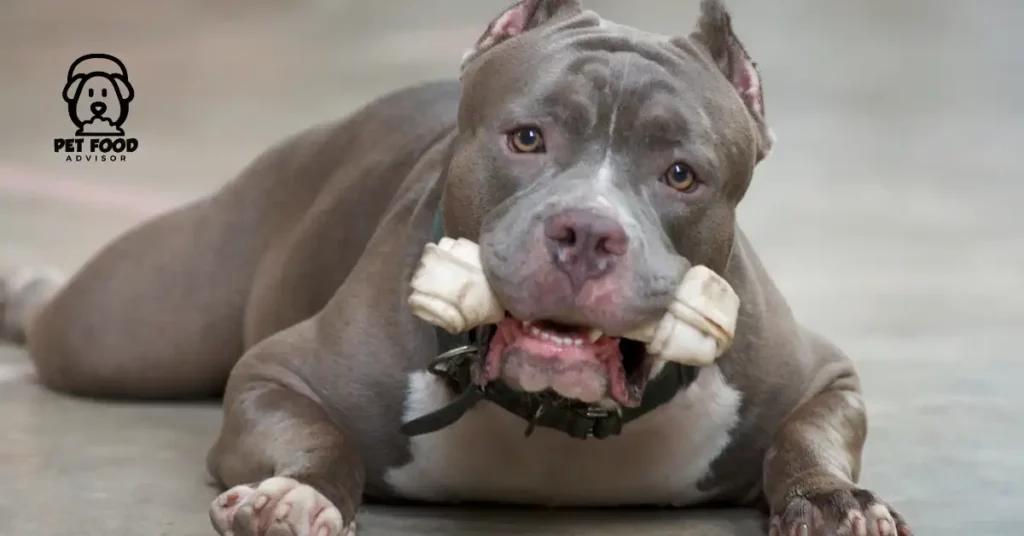The Complete Guide to Safe and Effective Abortion Shots for Dogs
When your dog is pregnant, sometimes it is required to end the pregnancy. The procedure of terminating the pregnancy depends on factors like the dog’s age and if the owner wants to breed it in the future. Sometimes your dog is too young, and at its early age, you worry that it may not safely deliver the baby. Or if the mating happened between mismatched partners, the owner might choose to end the pregnancy. To ensure the dog is genuinely pregnant, the veterinarian will confirm it before treating it.
An abortion shots for dogs can happen when the owner asks the veterinarian to terminate the pregnancy. If the pregnancy ends naturally without any intervention, it’s a miscarriage. People might opt for a planned termination for various reasons, such as protecting the mother’s health or accidental mating between dogs. In most cases, spaying the dog (removing the reproductive organs) is a preferred alternative to inducing an abortion.
Signs of Pregnancy Loss in Dogs
- When a dog is losing a pregnancy, it is a distressing moment. You must understand the signs that dogs show in this situation.
- When it is sudden or abnormal discharge from the dog’s vagina, it may indicate an abortion.
- When your dog is too tired after every work, it shows signs of weakness. It may also lack interest in its food, symbolizing pregnancy loss. The dog appears less active and energetic.
- If the dog is losing its pregnancy, then it also changes your dog’s behaviour. They may seem sad, withdrawn, or seek excessive attention and comfort from their owners.
- Dogs experiencing pregnancy loss may exhibit abdominal discomforts, such as whining, restlessness, or a hunched posture. They may also show signs of distress when their bellies are touched.
The above are the signs of abortion. If your dog shows any signs of the above, take it to the veterinarian and check it thoroughly.
Why do Dogs Experience Pregnancy Loss?
The causes of pregnancy loss in a dog are due to many reasons. When there are bacteria, viral or fungal infections can develop the risk of dog pregnancy loss. Many infectious bacteria cause abortion, so you must care for your dog when it goes outside or plays inside. These bacteria attack your dog and cause serious problems. Pregnancy loss is also due to genetic abnormalities. It may be transferred from the mother or the developing puppies.
Injury to the mother’s abdomen can also result in pregnancy loss. If your dog falls from a height and an accident occurs, it can disrupt the delicate environment necessary for the puppy’s growth and development. Certain medications or exposure to toxins during pregnancy can harm the developing puppies and lead to abortion. It is crucial to consult a veterinarian to ensure that any drugs or potential toxins are safe during pregnancy.
If you suspect that your dog is experiencing pregnancy loss or if you have concerns about her pregnancy, it is essential to seek veterinary advice. A veterinarian can perform necessary tests, determine the cause of the abortion, and provide appropriate care and guidance to help prevent future complications.
Timing for Terminating a Dog’s Pregnancy
In most cases, veterinarians typically recommend performing ovariohysterectomy, or spaying, as the primary solution for terminating a dog’s pregnancy. This procedure involves surgically removing both the uterus and ovaries. It is often suggested during the early stages of pregnancy, typically within the first month.
It’s important to note that performing an ovariohysterectomy on a pregnant dog poses increased risks. During pregnancy, blood vessels in the reproductive organs become engorged, making the surgery more complex. This prolonged surgical procedure also raises the risk associated with anaesthesia. Additionally, if the pregnancy is at an advanced stage and close to the due date, the puppies may already be fully formed, which would require individual euthanasia.
Giving Human Abortion Pills to Dogs
No, it is not safe to give your dog human abortion pills. Your dog is an aminal, and human abortion pills are designed and made for one human being. They are made according to their requirements, unsuitable, and recommended for dogs. These pills have severe and harmful effects on dogs.
To terminate the urgency, you must consult your vet according to your dog’s condition. Veterinarians have access to medications and procedures suitable to dogs’ unique physiology. If you use the human pills on the dog, then it can result in a harmful reaction, and even your dog will die due to these pills.
Different Approaches for Dog Abortion
Prostaglandin
Prostaglandin F2α is a medication used for inducing abortion in dogs. The veterinarian injects Prostaglandin F2α into the dog’s body. This injection is usually given thrice daily until all the fetuses are successfully expelled from the uterus. The progress is monitored using ultrasound or other imaging techniques. The treatment can last up to 14 days, although it is typically shorter. The goal is to ensure that all the fetuses are wholly and safely expelled from the dog’s uterus.
Sometimes, an intravaginal prostaglandin is used in conjunction with the injections. This combination helps reduce the treatment time and minimize secondary symptoms such as nausea, diarrhoea, restlessness, and tremors. It is essential to administer the prostaglandin doses under strict control. Veterinarians closely monitor and adjust the dosage to ensure it is appropriate for the dog’s size, condition, and stage of pregnancy. Overdosing can be dangerous, so precise control is essential.
Antiprogestins
Antiprogestins are a type of medication used for terminating pregnancies in dogs. Antiprogestins should only be used up to 45 days into the pregnancy. The treatment involves a series of injections. Daily injections are given for the first 48 hours; then, weekly injections are continued for two weeks. This makes a total of four applications throughout the treatment.
If antiprogestins are administered to dogs further along in their pregnancy (beyond 20-30 days), they may experience more severe symptoms. These can include the expulsion of fetuses with blood loss, loss of appetite (anorexia), and swelling or congestion in the mammary glands. It is important to note that antiprogestin treatments tend to be relatively expensive compared to other methods of dog abortion. Medication, veterinary fees, and the need for multiple injections influence the cost.
Dexamethasone
Dexamethasone is the method used for the termination of pregnancy in dogs. It is given to your dog in the form of pills. You give it to your dog two times a day. Dexamethasone treatment is delivered to your dog if you want the abortion after 30 days of the pregnancy. Expelling all the fetuses can take more than ten days to complete. When given to your dog, it is recommended to tell the owners about these risks, which include suppression of the immune system, increased susceptibility to infections, excessive water intake and urination, restlessness, and constant hunger. In this case, the dog’s owner has to take care of the dog.
Prolactin Inhibitors
The prolactin inhibitors method is also used for the loss of pregnancy. It is commonly used during the second half of the pregnancy. They are sometimes used separately or with prostaglandins to enhance their effectiveness in absorption. It is given to the dog like daily medication. You have to give it to your according to the recommendation of your dog vet each day. The treatment continues until the desired effect is achieved, which is the termination of the pregnancy. The duration of treatment can vary depending on individual circumstances and the dog’s response to the medication.
Oral Estrogens
Oral estrogen is the abortion method, but it is a very high dose, so it is restricted in the first few days of pregnancy. It has some risks to your dog’s health and is also life-threatening. Because of its high risk, many veterinarians do not use it and use other alternate methods.
Dogs Recover After Abortion
When the dog is during the abortion phase, you have to take care of your dog and support it. When the abortion is completed, your dog needs time to heal completely. It would help if you kept the area where the dog lives clean and comfortable. Give the dog proper care and attention.
The veterinarian may recommend monitoring the dog’s condition closely for any signs of complications or changes in behaviour. If there are any concerns or the dog does not seem to recover as expected, it is essential to contact the veterinarian immediately.
Conclusion
When terminating a dog’s pregnancy, it is essential to prioritize safety and effectiveness. Working closely with a veterinarian is crucial to ensure the best outcome. Methods like prostaglandin injections and antiprogestin treatments are commonly used and administered under professional guidance. These approaches help safely induce abortion while minimizing the dog’s health risks. Following the veterinarian’s instructions and monitoring the dog’s recovery post-abortion is essential. By making informed decisions and seeking proper veterinary care, we can help ensure the well-being of our beloved canine companions.





